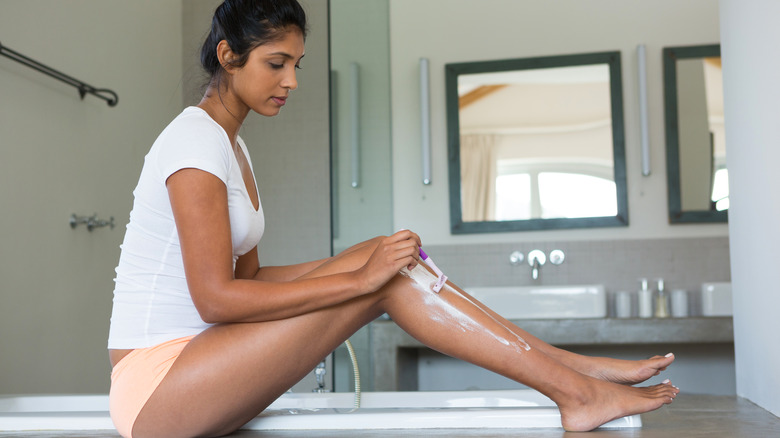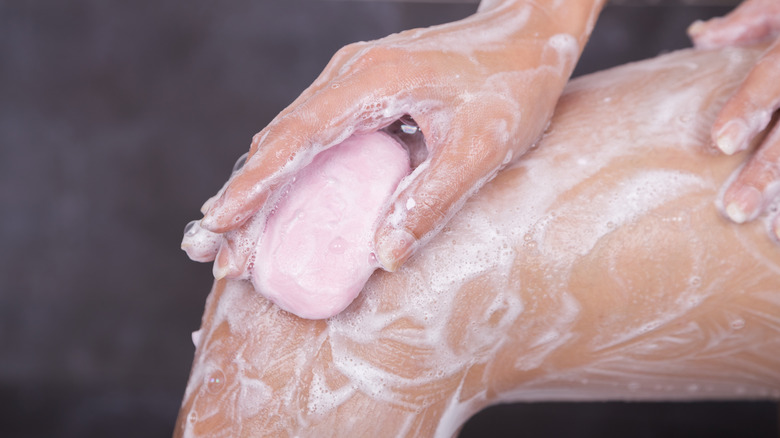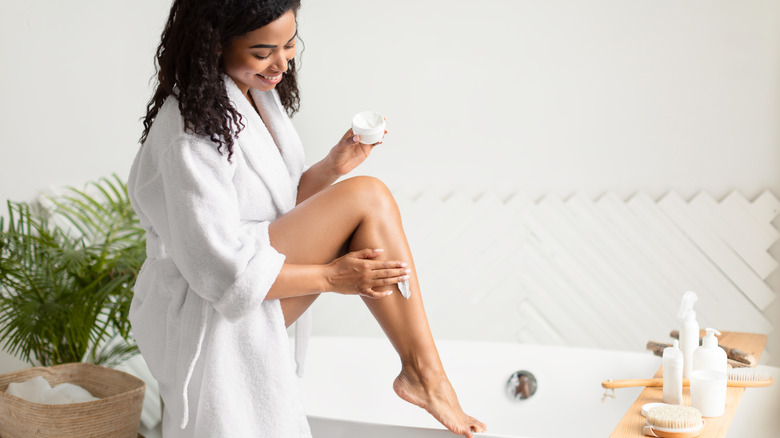Why You Should Ditch The Soap When Shaving With Eczema (And What To Use Instead)
Having itchy and dry skin can range from being a minor nuisance to entirely aggravating. Though most people experience occasional rashes or bug bites that result in temporary scratching and discomfort, others experience a longer-lasting condition called eczema. Eczema is another name for a subset of dermatitis, which is an inflammation of the skin that causes red bumps, patches, and severe itch (via Cleveland Clinic).
Some people first get eczema in childhood and outgrow it while others live with it for the rest of their lives. It's especially common in those who suffer from allergies and asthma. However, eczema can also occur at any point in basically anyone. It simply means that something in your environment triggers a reaction in your skin.
Consequently, it is helpful to look at everything that touches your skin when you live with eczema, and it's important to consider what you apply to your skin, especially when shaving.
Use products designed for shaving when you have eczema
Many people just grab some soap and water to lather up when shaving. After all, it's usually readily available and easy. However, using soap when you shave can be one of the biggest shaving mistakes you can make, particularly when you have eczema.
Soap can be very drying for the skin, even without eczema. That's why moisturizing after showering is so important. It removes the skin's natural oils and leaves it deficient in moisture, and the more the soap is abrasive or chemically laden, the more it can dry out the skin.
"It's important to use a shaving cream or mousse because when you shave, you're shaving the outermost layers of skin, too," Dr. Hadley King, a board-certified dermatologist, told Everyday Health. "If you don't use a good product with emollients and occlusive (moisturizing agents) to protect and moisturize the skin, you can end up with abrasions and irritation, which can only make eczema worse."
Water temperature and post-care make a difference, too
Another thing to remember while shaving is to check the water's temperature. It shouldn't be too hot because that can induce itching. You want to reach a comfortable warm or tepid temperature to get the job done.
It's not only what you use to shave but also what you do after shaving is done. Your skin is left in a vulnerable state and susceptible to more itching. It's vital to moisturize the skin to replenish natural oils. The best time to apply moisturizer is when the skin is still damp and can absorb it more readily. Make sure to choose a gentle formula that doesn't contain a lot of chemicals or fragrances.
Finally, once done, be careful not to irritate delicate skin with clothing. "Do not wear tight-fitting clothes, as the friction of your shaven skin rubbing against clothes can irritate the skin," Dr. Annie Gonzalez told Byrdie. Opt for lightweight soft clothes that allow for movement.


